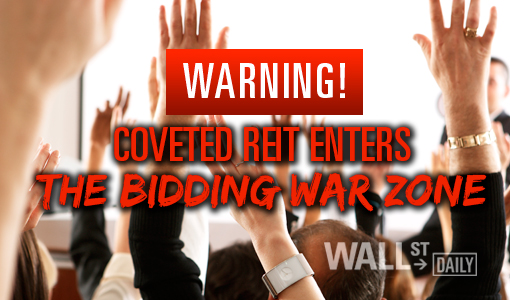
After the 2008 financial crisis, hostile corporate takeovers fell out of favor. The high debt loads associated with them simply turned companies off.
But after several years of the Fed's zero-interest-rate policies and strengthening corporate balance sheets, investors are starting to see hostile activity ratchet up significantly.
Now, once a company starts aggressively pursuing another, investors often pile into the target company's stock. It's a way to force the acquirer to raise its bid.
Plus, some target companies actively fight back against what they believe to be inferior bids.
Here's how one such showdown played out on Tuesday…
Mall operator Macerich (MAC) rejected a hostile bid from the top u.s. mall operator, Simon Property Group (SPG).
Simon's offer included a total enterprise value (TEV) of $22 billion. But Macerich didn't bite, sending its shares down by more than 3.4%.
Macerich's board said the unsolicited offer from Simon to acquire the company for $91 per share in cash and stock substantiallyundervalues Macerich. Therefore, the deal isn't in its shareholders' best interests.
MAC also expressed concern with Simon's plan to sell significant assets to mall operator General Growth Properties (GGP), the nation's second-largest mall operator, since this would likely raise potential anti-trust concerns.
To top it off, Macerich announced approval of two corporate governance changes to help it fight any coercive takeover attempts.
Defense #1: New Board Structure. The first change adopts a classified board structure in which company directors will be assigned to one of three classes, each serving three-year terms. The company said it would re-evaluate the need to maintain this structure in 2016.
Defense #2: Poison Pill. The company also adopted a limited-duration stockholder rights plan, commonly known as a poison pill. It authorizes a dividend distribution of one preferred share-purchase right on each outstanding share of Macerich's common stock.



